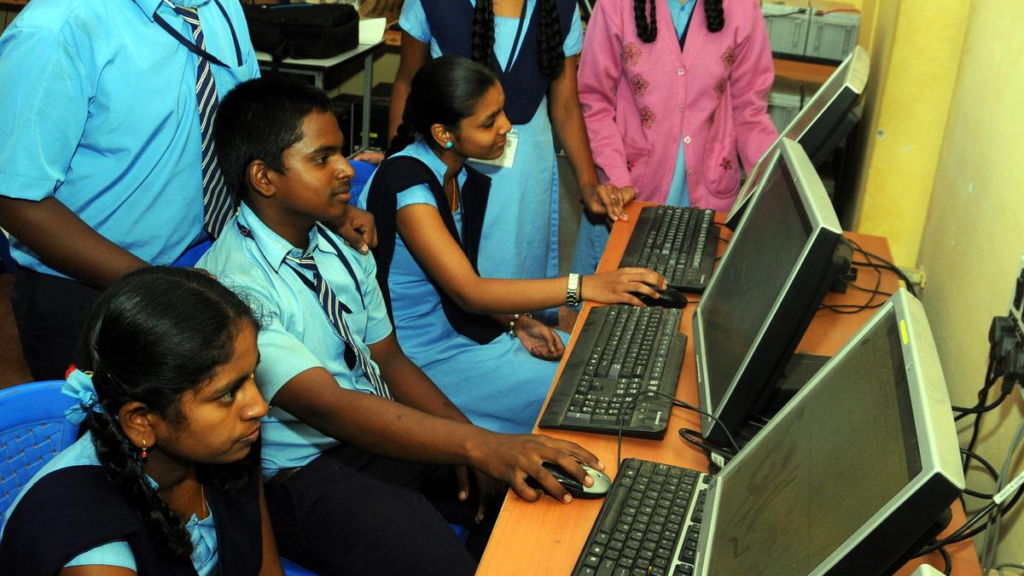iCode is Karnataka’s bold new step toward bridging the digital education gap between government and private school students. With the launch of i-Code Labs in selected government schools from the academic year 2025 to 2026, the Department of School Education and Literacy (DSEL) aims to bring technology-based learning to the forefront, giving students access to computer education and coding from an early age.
This initiative, taken in collaboration with the Agasthya Foundation, is designed to help students in government schools stay on pace with the rapid advances in technology that are already deeply rooted in private school curricula. While most private schools have full-fledged computer labs and structured lessons in coding, government school students are often left behind due to limited infrastructure, lack of electricity, and insufficient access to internet and hardware.
Across Karnataka, there are around 43,000 government schools. However, only about 1,500 of them currently have computer labs equipped with ICT tools. Even among these, regular and systematic computer education is rare. The iCode project aims to fill this gap and make digital literacy a core part of schooling for students from classes 6 to 10.
The project was officially announced by Chief Minister Siddaramaiah in the State budget for the year 2025 to 2026. It reflects the government’s intent to provide free and quality computer education to all children studying in government institutions. The program will begin by identifying 63 schools that already have Information and Communication Technology facilities. These schools will act as central hubs, each connecting and supporting around 12 nearby government schools, called spoke schools, making a total of 756 schools benefitting from the first phase.
K V Trilok Chandra, the Commissioner of Public Instruction, confirmed that preparations are underway and an official order will be issued soon. “As announced by the Chief Minister, steps have been taken to set up i-Code Labs in select government schools. In the first phase, computer education will be introduced for students from classes 6 to 10,” he said.

The curriculum will include foundational knowledge in computer basics, along with practical sessions in coding and decoding. “Coding is not just about learning a programming language. It trains the mind to think logically and solve problems step by step. This kind of thinking will help students perform better in other academic subjects as well,” Trilok Chandra explained.
The iCode Labs will go beyond just computer screens. These labs will serve as innovation spaces where students can get hands-on experience, try out new technologies, and develop an interest in fields such as robotics, artificial intelligence, and data science. The labs will also be supported by trained educators and interactive modules designed for different learning levels.
This effort is not just about introducing computers into classrooms — it is about leveling the playing field. Students in government schools often do not get the same opportunities as those in private schools. The iCode initiative aims to change that by giving them the tools to think creatively, work on digital projects, and develop real-world skills that will be essential in higher education and future employment.
The implementation of the program will be closely monitored and gradually expanded to include more schools in the coming years. Schools that already have basic ICT infrastructure will be prioritized for the next phases. The government, in partnership with private foundations like Agasthya, is also planning capacity-building workshops for teachers to ensure smooth delivery of the content.
In a world where technology is becoming central to every aspect of life, Karnataka’s iCode initiative is more than just an education reform. It is a vision for the future, one where every child, no matter where they go to school, has access to quality digital learning and the confidence to code their way into tomorrow.
ALSO READ
Dropouts: Delhi Govt Launches Study to Understand Causes and Improve Education Quality
DU Four-Year UG Programme Sparks Mixed Reactions as Final Year Rolls Out
School’s slip-up costs first-gen SC student two years of education in Tamil Nadu